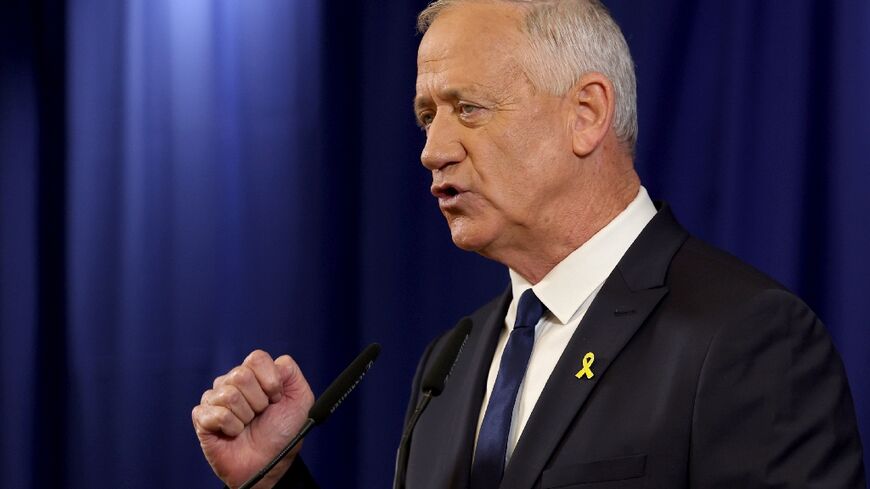Gideon Saar ditches Israeli cabinet over Netanyahu’s Gaza strategy
New Hope party leader Gideon Saar resigned from the government after Prime Minister Benjamin Netanyahu refused to include him in the small war cabinet.

New Hope party leader Gideon Saar resigned from the Israeli government on Monday night after Prime Minister Benjamin Netanyahu refused to include him in the war cabinet.
Addressing the press, Saar said that he asked Netanyahu two weeks ago to include him not only in the broader security cabinet but also in the war cabinet, alongside opposition figures Benny Gantz, Gadi Eisenkot and Defense Minister Yoav Gallant. His request came, he explained, after realizing that the larger security cabinet was in fact excluded from receiving much of the intelligence provided to the war cabinet that is shaping the strategy and trajectory of the war.
"I can't carry the responsibility if I do not have, in my judgment, a real possibility to influence the direction of policy. I simply do not see any benefit in this," Saar said in his remarks criticizing the war strategy and cabinet charged with decision-making.
Why it matters: The New Hope party ran in 2022 on a joint ticket with Benny Gantz’s National Camp party. Saar’s party got four Knesset seats, while Gantz’s party got eight. After Hamas' attack on Israel on Oct. 7, the bloc joined the emergency unity government led by Netanyahu, but Saar was not included in the war cabinet and has spoken out against the body's prosecution of the war.
On March 12, Saar announced that New Hope was separating from its alliance with Gantz's camp, claiming that the more centrist Gantz and Eisenkot are blocking a fiercer and swifter military operation in Gaza. He then went on to demanded inclusion in the war cabinet, as head of a separate, independent party.
While Saar's departure is not expected to cause the collapse of Netanyahu's coalition government, which still has a majority of 64 out of 120 Knesset seats, the political turmoil could embolden far-right voices within the government who have been complaining that important war decisions are being decided in the war cabinet instead of by the larger security cabinet of which they are a part.
In leaving the government, Saar is expected to increase, from the opposition benches, his criticism of the war cabinet, which could encourage the far-right ministers already dissatisfied with the cabinet to up their criticism, too. The far-right ministers, namely, far-right National Security Minister Itamar Ben-Gvir and Finance Minister Bezalel Smotrich, demand that Israel strives to completely eliminate Hamas, even if that comes at the expense of the safe release of hostages.
Since the war started, Ben-Gvir and Smotrich have also agitated for a war cabinet position, though Netanyahu has refused despite fears that their parties' departure from government, a total of 13 Knesset seats, could indeed cause the fragile coalition to fall.







